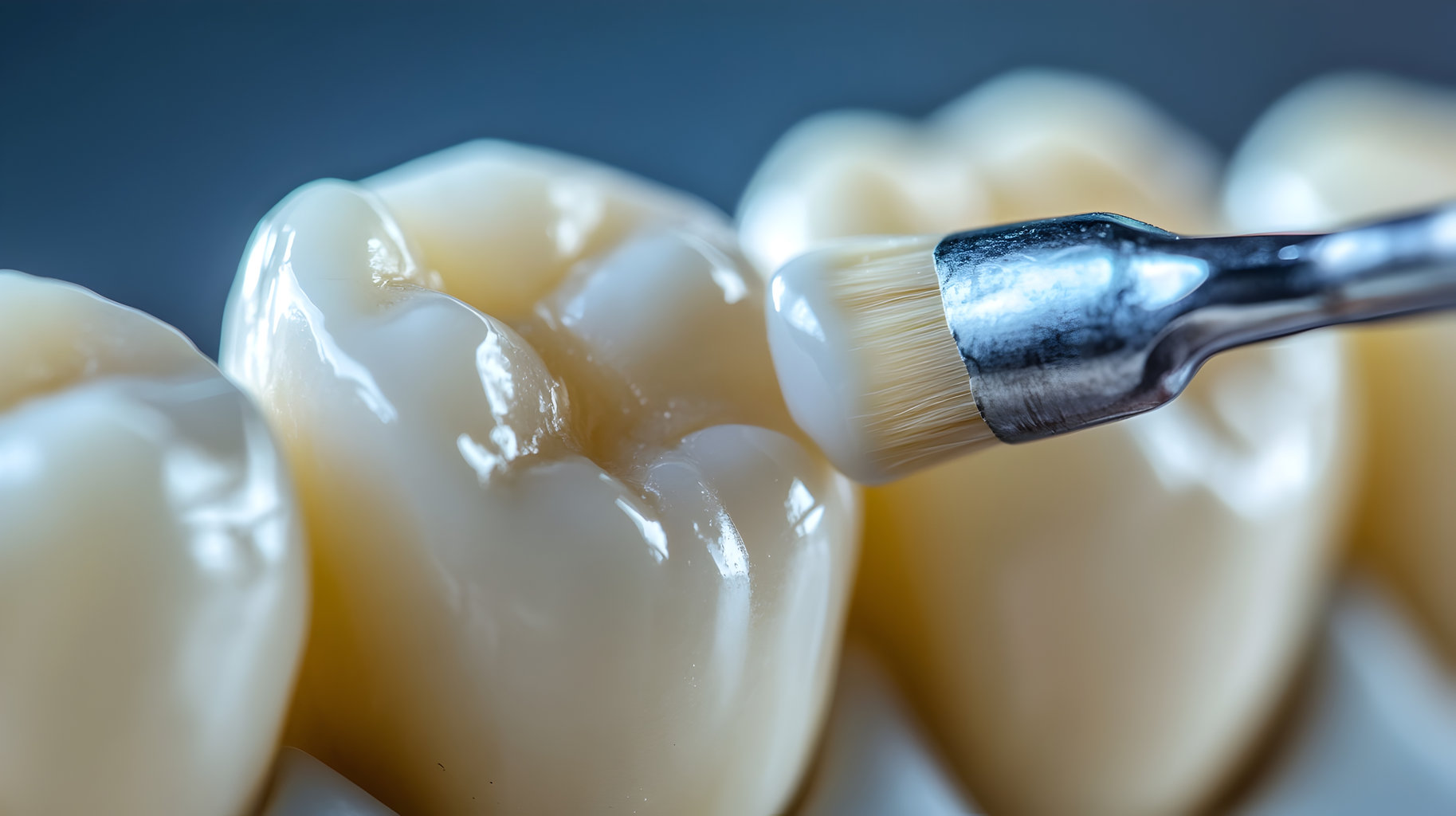Dental sealants represent one of the most effective preventive measures in modern dentistry, yet many patients remain unaware of their protective benefits. These thin, plastic coatings create a barrier over the chewing surfaces of back teeth, preventing cavity-causing bacteria from settling into the deep grooves and pits where toothbrush bristles cannot reach. While particularly beneficial for children and teenagers, dental sealants offer valuable protection for patients of all ages who want to maintain optimal oral health.
At JAX Dental Studio, Dr. Charles Poblenz and our experienced team understand that prevention is always preferable to treatment. We regularly recommend dental sealants as part of comprehensive preventive care plans, helping our Jacksonville patients avoid the discomfort and expense of more extensive dental procedures down the road.
Understanding How Dental Sealants Work
Dental sealants function as a protective shield for your teeth’s most vulnerable surfaces. The back teeth, particularly molars and premolars, contain natural grooves and fissures that make them difficult to clean thoroughly, even with excellent brushing and flossing habits. These areas become prime locations for plaque accumulation and bacterial growth.
The sealant material bonds directly to the tooth surface, creating a smooth coating that makes cleaning easier and prevents food particles from becoming trapped. This barrier effectively blocks out bacteria and acids that would otherwise cause tooth decay. The application process is completely painless and typically takes just a few minutes per tooth.
The Application Process
Applying dental sealants requires no drilling or removal of tooth structure. First, the tooth surface is thoroughly cleaned and dried. A special gel may be applied to help the sealant bond properly, then rinsed away. The liquid sealant is then painted onto the tooth surface, where it flows into the grooves and hardens either naturally or with the help of a special curing light.
Who Benefits Most from Dental Sealants?
Children and teenagers receive the greatest benefit from dental sealants, as their newly erupted permanent teeth are most susceptible to decay. The Centers for Disease Control and Prevention reports that sealants can reduce cavities in molars by up to 80 percent for two years after application and continue providing protection for up to four years.
However, adults without existing decay or fillings in their back teeth can also benefit significantly from sealants. Many adults develop their first cavities in their 20s and 30s, making sealant application a worthwhile investment in long-term oral health. Adults with deep grooves in their teeth, those prone to cavities, or individuals with limited dexterity who struggle with thorough cleaning may find sealants particularly beneficial.
Special Considerations for Different Age Groups
Young children may receive sealants on their primary molars if they have deep grooves and are at high risk for cavities. Teenagers should consider sealants for their permanent molars and premolars as soon as these teeth fully emerge. Adults should discuss sealant options with their dentist, particularly if they have a history of cavities or difficulty maintaining optimal oral hygiene.
Longevity and Maintenance of Dental Sealants
Dental sealants can last several years with proper care, though they should be checked regularly during routine dental visits. Some sealants may last up to 10 years, while others may need replacement sooner, depending on individual factors such as diet, oral habits, and the force of chewing.
Signs that sealants may need attention include visible chips, cracks, or areas where the sealant has worn away. Regular dental checkups allow your dentist to monitor sealant condition and recommend reapplication when necessary. Maintaining good oral hygiene habits, avoiding hard foods that could damage sealants, and wearing a night guard if you grind your teeth can help extend sealant longevity.
- Regular dental checkups ensure sealants remain intact and effective
- Good oral hygiene habits support overall sealant performance
- Avoiding excessive force on sealed teeth helps prevent premature wear
Proper maintenance also includes being mindful of sticky or hard foods that could potentially pull sealants away from tooth surfaces.
Protect Your Smile with Professional Preventive Care at JAX Dental Studio
At JAX Dental Studio, we believe in empowering our patients with the knowledge and tools they need for lifelong oral health. Dr. Poblenz brings years of experience in preventive dentistry to every patient interaction, carefully evaluating individual risk factors and recommending appropriate protective measures. Our team stays current with the latest developments in preventive care, ensuring you receive the most effective treatments available.
Whether you’re considering sealants for your child’s newly erupted permanent teeth or exploring preventive options for yourself, we’re here to help you make informed decisions about your oral health. Our comfortable Jacksonville office provides a welcoming environment where patients of all ages can receive quality care tailored to their specific needs. Contact JAX Dental Studio at (904) 396-4091 or visit our contact form to schedule your consultation and learn more about how dental sealants can protect your smile.


